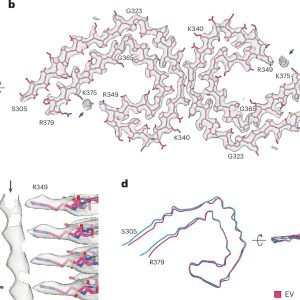
A systematic review and network meta-analysis of 68 studies has found no clear evidence that any specific antipsychotic significantly improves cognitive function in patients with schizophrenia spectrum disorders compared to placebo.
Cognitive deficits are a core component of schizophrenia spectrum disorders (SSDs), affecting memory, attention, and overall cognitive function, contributing significantly to the burden of the disease. Antipsychotics, widely used to manage SSDs, are not considered or expected to be cognitive enhancers.
Antipsychotics are primarily used to manage the core symptoms of SSDs, such as hallucinations, delusions, reduced emotional expression and social withdrawal. Since cognitive improvement is not the purpose of these drugs, it remains an understudied aspect of drug interaction.
Researchers led by the Technical University of Munich, Germany, wanted to determine the association between treatment with various antipsychotics and cognitive function in patients with SSDs.
In a meta-data review study, “Antipsychotic Drugs and Cognitive Function: A Systematic Review and Pairwise Network Meta-Analysis,” published in JAMA Psychiatry, researchers compared the effects of different antipsychotic drugs with placebo to evaluate whether these drugs improve cognitive performance in patients with SSDs.
The team searched for blinded and unblinded randomized clinical trials lasting at least three weeks that used standardized cognitive assessment tools, primarily the MATRICS Consensus Cognitive Battery. Resulting data from 9,525 participants determined that while antipsychotics as a group showed slight cognitive benefits, no individual drug demonstrated a substantial advantage over placebo. Secondary analyses found minimal effects on quality of life and social functioning.
First-generation antipsychotics, such as haloperidol and fluphenazine, along with clozapine, ranked low in cognitive outcomes. Some second-generation antipsychotics, including paliperidone and sertindole, showed slightly better cognitive outcomes but without significant benefits over placebo.
Antipsychotics grouped by their receptor-binding properties showed minor improvements in cognitive function, with standardized mean differences (SMD) effect sizes ranging from 0.21 to 0.40, but none demonstrated robust cognitive enhancement. SMD between drugs and placebo for different receptor-binding profiles included adrenergic/low dopamine (0.21), serotonergic/dopaminergic (0.26), muscarinic (0.28), and dopaminergic (0.40).
First-generation antipsychotics, such as haloperidol (0.04) and fluphenazine (0.15), ranked low in cognitive performance, as did clozapine, a second-generation antipsychotic often used for treatment-resistant schizophrenia, also ranked low (0.12).
For reference, a significant or noticeable SMD result would be anything 0.5 or higher, with 0.8 being considered a substantial difference.
The results for molindone and thioridazine ranked higher but were considered less reliable due to small sample sizes (15 to 22 participants) and only using one metric, processing speed, to determine cognitive outcomes.
These results suggest that antipsychotics provide limited cognitive benefits for patients with SSDs. New or additional treatments specifically targeting the cognitive component of the condition are needed. The authors recommend that first-generation dopamine antagonists and clozapine should be avoided when cognitive deficits are a concern and emphasize the need for standardizing cognitive assessments across trials to improve the comparability of results.
More information:
Lena Feber et al, Antipsychotic Drugs and Cognitive Function, JAMA Psychiatry (2024). DOI: 10.1001/jamapsychiatry.2024.2890
© 2024 Science X Network
Citation:
Meta-analysis reveals minimal cognitive gains from antipsychotic drugs (2024, October 19)
retrieved 19 October 2024
from https://medicalxpress.com/news/2024-10-meta-analysis-reveals-minimal-cognitive.html
This document is subject to copyright. Apart from any fair dealing for the purpose of private study or research, no
part may be reproduced without the written permission. The content is provided for information purposes only.







